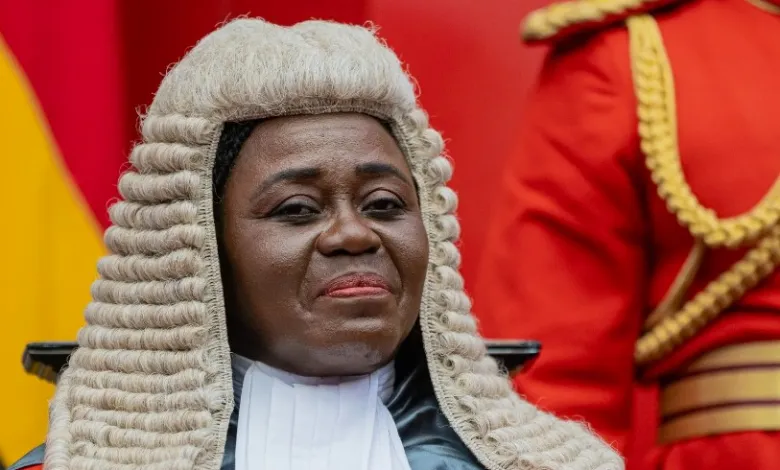Ghana’s Constitutional Crisis: Petitions Against Chief Justice Shrouded in Secrecy
Presidential Confidentiality Maintains Constitutional Integrity
In a development that has captured the attention of Ghana’s legal community, Minister of State in Charge of Government Communications, Felix Kwakye Ofosu, has revealed that Chief Justice Gertrude Torkornoo has formally responded to petitions seeking her removal. Speaking on Face to Face on Channel One TV, Kwakye Ofosu emphasized the exceptional level of confidentiality surrounding these petitions, in strict adherence to Ghana’s constitutional provisions.
“Indeed, as I sit here, I don’t know the content of the petitions, as the constitution dictates. The President has kept it close to his chest. There is a high level of confidentiality,” Kwakye Ofosu stated during the interview with host Umaru Sanda Amadu on Tuesday, April 8.
The Minister’s revelations offer a rare glimpse into the procedural mechanisms governing judicial accountability in Ghana while maintaining the constitutional secrecy that surrounds such extraordinary measures.
Constitutional Process Follows Strict Timeline
According to Kwakye Ofosu, the Chief Justice has complied with constitutional requirements by responding within the mandated seven-day timeframe.
“As of last week Friday, which was exactly seven days since she was given the petition, she had responded, and the processes are ongoing,” he confirmed during the televised interview.
The process now enters a critical phase as consultations between the President and the Council of State continue behind closed doors. These discussions will determine whether sufficient grounds exist to proceed with the unprecedented action of removing Ghana’s top judicial officer.
Presidential Discretion Guided by Constitutional Mandate
While maintaining strict confidentiality about the specific allegations contained in the petitions, Kwakye Ofosu assured the public that any presidential action would be guided solely by constitutional requirements.
“I can assure you that nobody apart from the President himself and perhaps his legal advisors is privy to this petition. And nobody will know until the law mandates that they be made public,” the Minister explained, highlighting the separation of powers in Ghana’s governance structure.
The Minister was careful to emphasize that further actions remain contingent on constitutional findings: “If—and it’s a big if—it is found that there is a basis to proceed, the President will abide.”
Implications for Ghana’s Judicial Independence
This rare constitutional process represents one of the most significant challenges to Ghana’s judicial leadership in recent years. The petitions against Chief Justice Torkornoo invoke constitutional provisions designed to ensure judicial accountability while protecting the independence of the judiciary.
Legal experts suggest that the confidentiality surrounding these proceedings serves a dual purpose: protecting the integrity of the judiciary while ensuring that any allegations against the Chief Justice receive proper constitutional consideration without public pressure or prejudice.
Precedent and Process in Constitutional Governance
While the details remain confidential, the process itself demonstrates the functioning of constitutional checks and balances in Ghana’s democratic system. The constitutional provisions for removing a Chief Justice have rarely been invoked, making this case particularly significant for legal scholars and practitioners.
What Happens Next?
As the nation awaits further developments, the process will continue to follow constitutional guidelines. If the Council of State recommends proceeding, the matter would then be referred to a committee for investigation before any final decision is made.
For now, both the government and the judiciary continue to operate within the framework of strict constitutional provisions, balancing the public’s right to information with the need for procedural integrity



